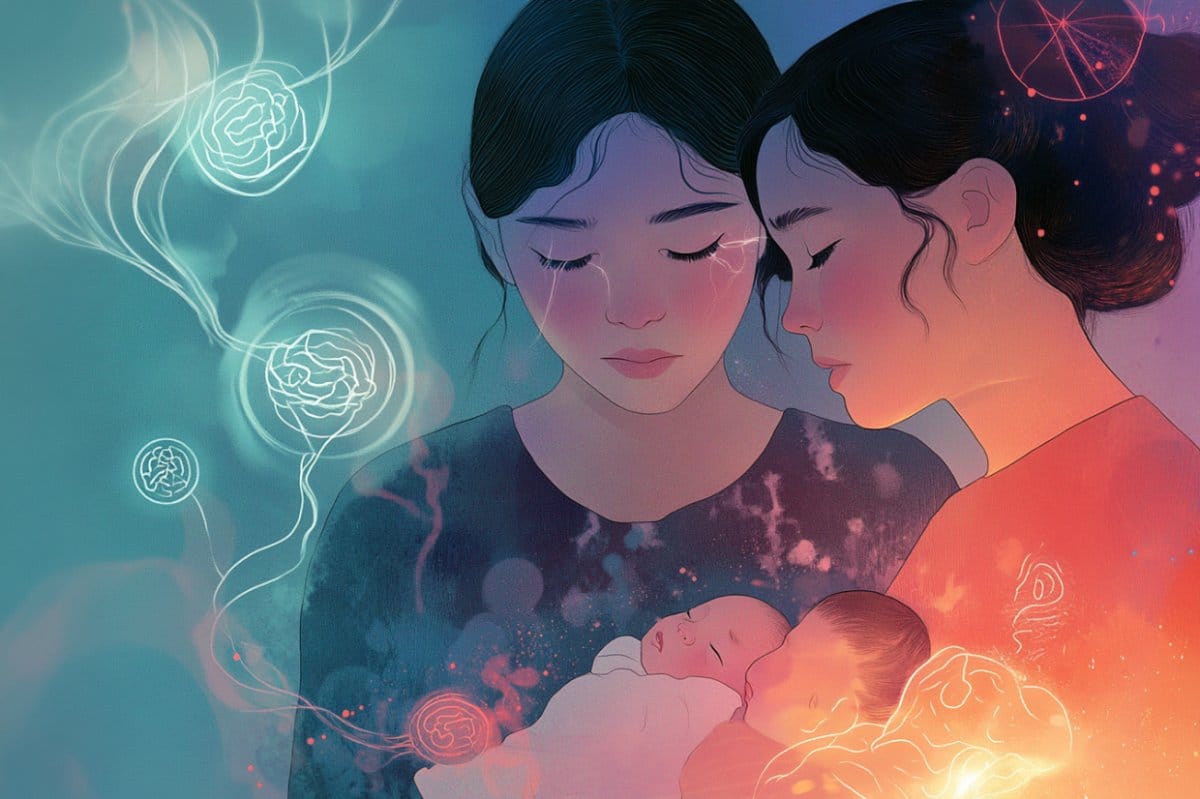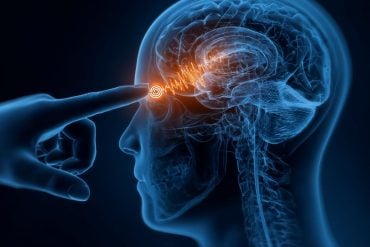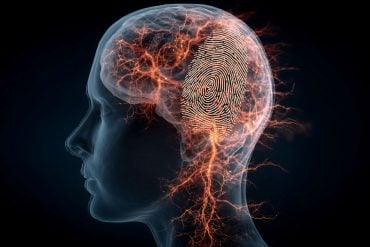Summary: Women are over 10 times more likely to develop postpartum psychosis if their sister has experienced the condition, according to a major study of more than 1.6 million women. This rare but severe disorder, marked by hallucinations, paranoia, and disorganized thinking after childbirth, can have life-threatening consequences if not treated.
The findings highlight a strong familial risk, particularly when bipolar disorder is also present, underscoring the need for early screening and increased awareness. While the relative risk is high, the actual risk remains low, at 1.6%, but understanding family history could allow for preventive interventions and targeted mental health support during the vulnerable postpartum period.
Key Facts:
- High Familial Risk: Having a sister with postpartum psychosis raises a woman’s risk more than tenfold.
- Bipolar Link: The risk increases to 14x if the sister also has bipolar disorder.
- Call for Awareness: Despite its severity, postpartum psychosis remains understudied and underdiagnosed.
Source: Mount Sinai Hospital
Mount Sinai researchers have found for the first time that a woman is more than 10 times more likely to develop postpartum psychosis if her sister had experienced the condition, compared to a woman with a sister who did not.
The findings, which were published May 19 in the American Journal of Psychiatry and highlighted at the American Psychiatric Association’s annual meeting press briefing the same day, suggest both genetic and shared environmental influences.
Postpartum psychosis is a rare but serious mental illness that leaves a devastating impact on mothers in the vulnerable weeks and months after childbirth. It carries increased risk of suicide and infanticide if left untreated.
Among the early warning signs of postpartum psychosis are severe mood swings, hallucinations, disorganized thinking, insomnia, paranoia, and thoughts of self-harm.
Despite the devastating ramifications of the disorder, it remains vastly understudied and a challenge for physicians to diagnose and address.
“Every woman of childbearing age and their physicians need to know about the existence of, severity, symptoms, and familial risk for postpartum psychosis so it can be promptly diagnosed and, hopefully, prevented,” said Veerle Bergink, MD, PhD, Director of the Women’s Mental Health Center at Mount Sinai and co-senior author of the paper.
“At present, too many women at higher risk don’t know it and are left on their own with a new baby and no support. We hope these study findings will help move the needle and impart change.
“With wider recognition of this particular condition and risk factors for it, we can implement changes to help ease the burden for women during this postpartum period.”
The Mount Sinai study team examined the records of more than 1.6 million women from the Swedish nationwide registries, identifying 2,514 women who had experienced postpartum psychosis within three months of their first childbirth.
In addition to finding that a woman is more than 10 times more likely to develop postpartum psychosis if her sister had the condition, the Swedish registry study showed that the presence of bipolar disorder in a sister doubles the woman’s risk of developing postpartum psychosis.
Women with a sister who has bipolar disorder and postpartum psychosis were shown to be at highest risk; their risk for developing postpartum psychosis themselves is 14 times increased.
The study measured relative recurrent risk for the disorder, which implies increased likelihood of its appearance in another member of the family. This differs from actual risk, which refers to the probability of developing the condition.
Researchers learned that while the relative risk of postpartum psychosis is quite high in full siblings, the absolute risk for women with an affected sister is still low at 1.6 percent.
“These findings support the view that even though there is overlap between postpartum psychosis and bipolar disorder, these are in fact, distinct conditions,” said Dr. Bergink.
“We hope this new data will help move the needle and impart change. With wider recognition of this particular condition and risk factors for it, measures can and should be taken to help ease the burden for women during this postpartum period.”
Beyond expanding awareness around postpartum psychosis, this study provides a solid foundation for the next step of research, aimed at early recognition and prevention.
Work that involves identifying the genes responsible for this disease is already underway at Mount Sinai in the lab of Behrang Mahjani, PhD, Assistant Professor of Psychiatry at the Icahn School of Medicine at Mount Sinai and co-author of the study.
“We’re using complex molecular data to investigate the genetic architecture of the disease,” says Dr. Mahjani.
“Knowing what specific genes are involved will help us dive into the mechanisms and triggers of postpartum psychosis, and if they’re hormone- or immune-related. And that, in turn, could lead us to novel treatments and ways to proactively inform women of their risk before they’re faced with a severe health crisis.”
About this postpartum psychosis and genetics research news
Author: Elizabeth Dowling
Source: Mount Sinai Hospital
Contact: Elizabeth Dowling – Mount Sinai Hospital
Image: The image is credited to Neuroscience News
Original Research: Open access.
“Familial Risk of Postpartum Psychosis” by Veerle Bergink. American Journal of Psychiatry
Abstract
Familial Risk of Postpartum Psychosis
Objective:
Postpartum psychosis is one of the most severe psychiatric conditions, with high risks of suicide and infanticide if untreated. Although genetic factors contribute to the risk of postpartum psychosis, the extent of familial risk remains to be determined.
The authors compared relative recurrence risk across different family relationship types, hypothesizing that relative recurrence risk for postpartum psychosis varies by degree of genetic relatedness and is higher in female full siblings than in cousins.
Methods:
This cohort study consisted of 1,648,759 women from the Swedish nationwide registers, of whom 2,514 (0.15%) experienced postpartum psychosis within 3 months of their first-ever childbirth. The authors estimated the relative recurrence risk of postpartum psychosis for female full siblings and cousins as a measure of familial risk.
Results:
The relative recurrence risk of postpartum psychosis in full siblings was 10.69 (95% CI=6.60, 16.26) when adjusted for year of and age at childbirth. Although cousins showed an elevated relative recurrence risk, these results did not reach statistical significance (1.78, 95% CI=0.70, 3.62).
Despite the higher familial risk of postpartum psychosis among full siblings, the absolute risk for women with an affected sibling was relatively low, estimated at 1.60% within the entire population.
Conclusions:
The observed increased risk of postpartum psychosis in full siblings suggests both genetic and shared environmental influences. However, the lack of significant results in cousins hampers a more accurate distinction between these factors.
Furthermore, despite increased relative recurrence risk in siblings, their overall likelihood of developing postpartum psychosis remains low.
This study underscores the need for further research to better understand the intricate interplay of genetics and shared environment in the development of postpartum psychosis.







